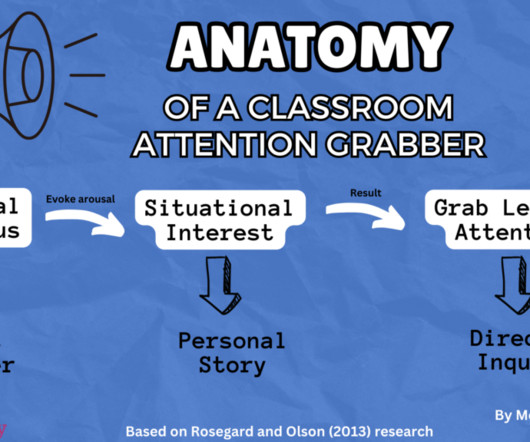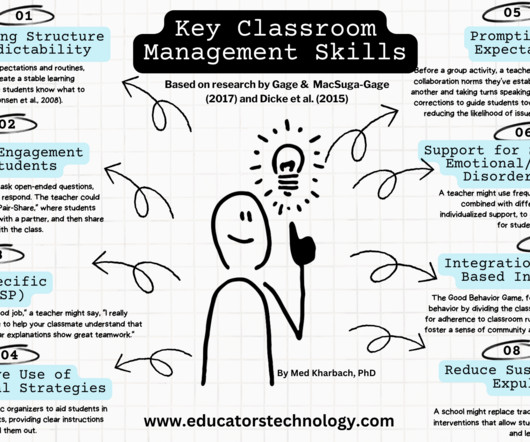30 Effective Classroom Attention Getters with Examples
Educational Technology and Mobile Learning
DECEMBER 29, 2023
For instance, Wallace, Vodanovich, and Restino (2003) discussed how boredom correlates with attention deficit and memory lapses, signaling a deeper issue than mere disinterest. 2010) linked boredom to attentional problems in class, while Maroldo (1986) noted its association with lower GPAs and a decreased motivation to learn.



































Let's personalize your content